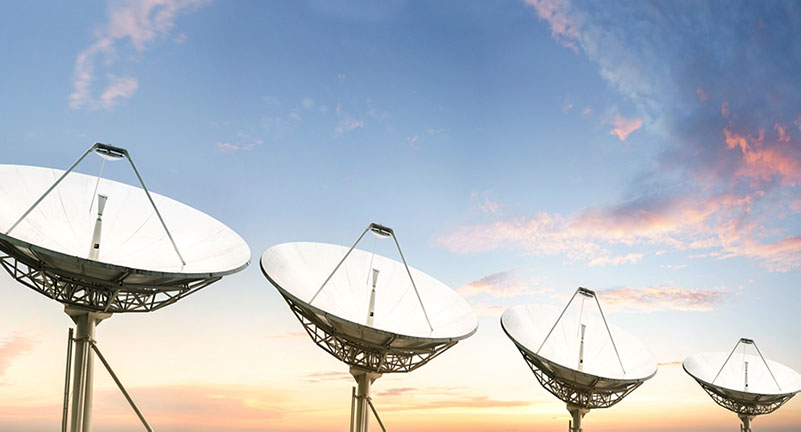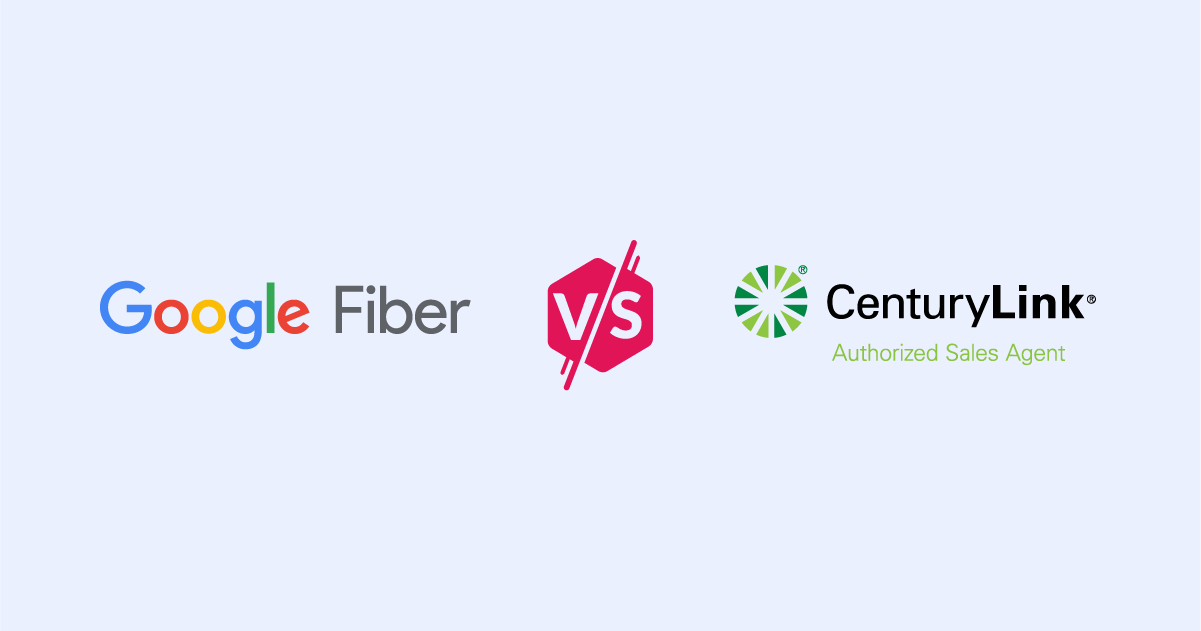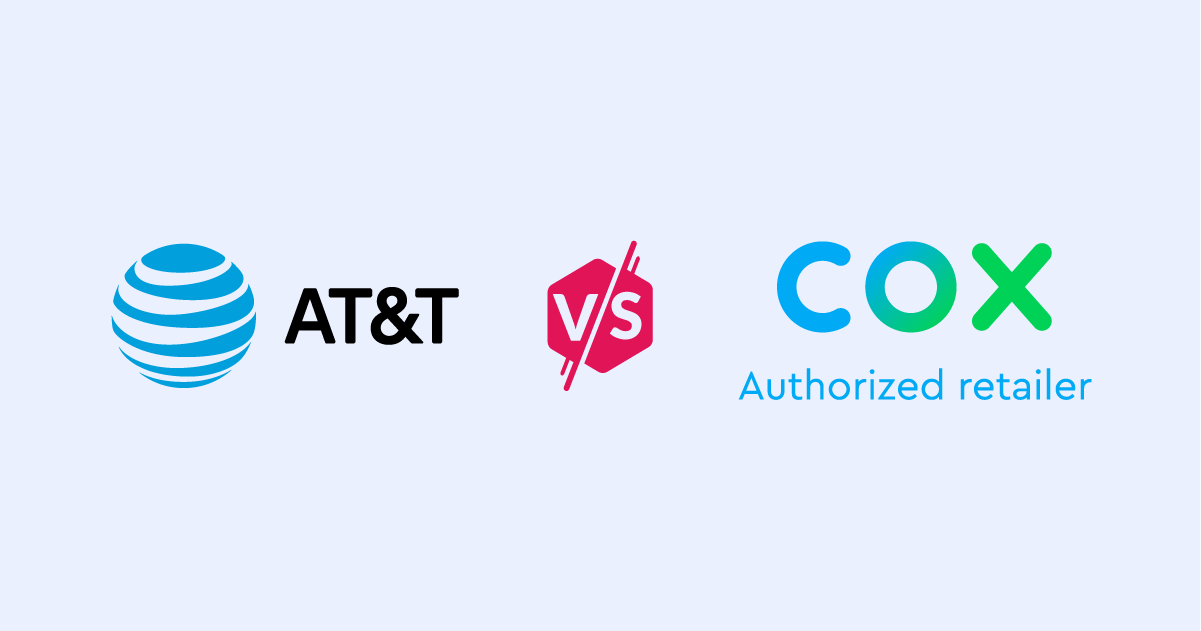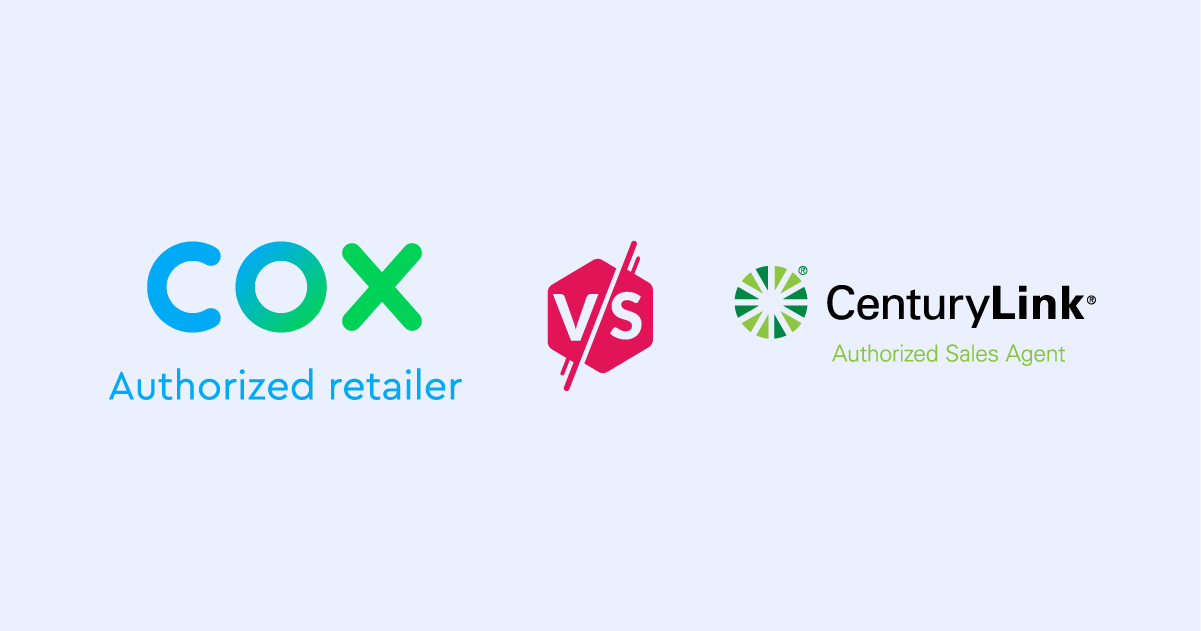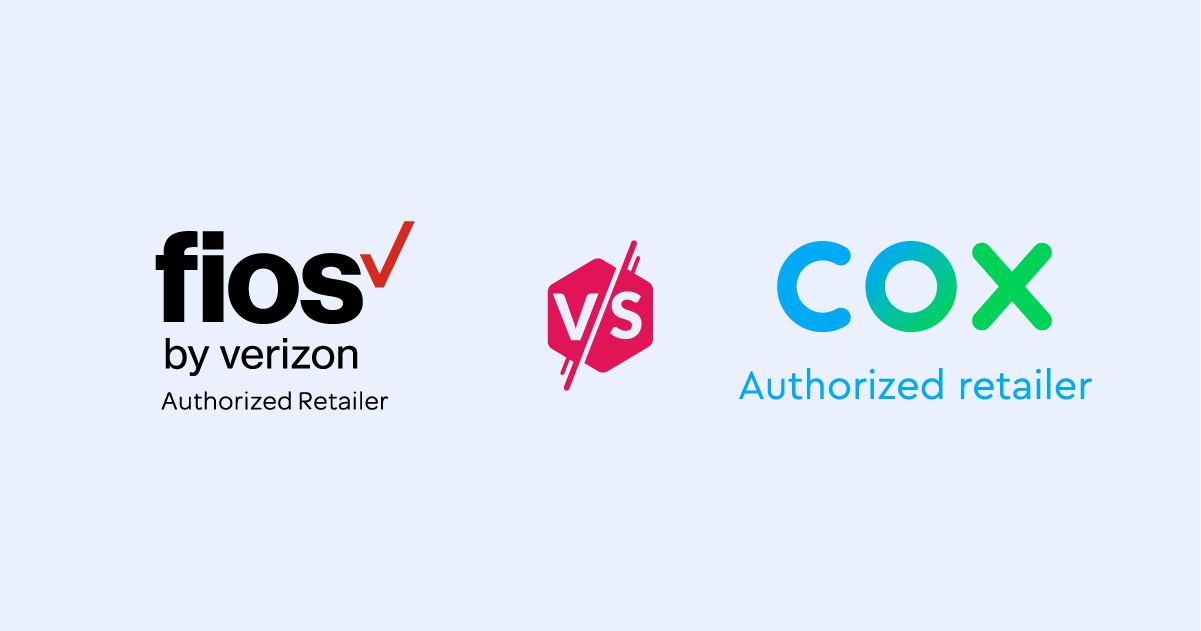Viasat vs. HughesNet: Which Internet Provider Is Best for You?
Viasat offers the fastest satellite internet speeds, while HughesNet provides the most affordable plans.
Jul 7, 2023 | Share
Provider Comparisons (Versus)
-
Best speeds
- Customer Rating: 3.1/5*
- Price: $59.99–$299.99/mo.†
- Speed: 25–150 Mbps
- Internet type: Satellite
- Data cap: 60GB–Unlimited
-
Best prices

- Customer Rating: 3.1/5*
- Price: $49.99–$174.99/mo.‡
- Speed: 15-50 Mbps
- Internet type: Satellite
- Data cap: 15–200 GB
Data as of 04/12/2023. Offers and availability may vary by location and are subject to change.
*Based on our annual Customer Satisfaction Survey
†Prices and availability vary by location. Installation fees, monthly equipment lease fees, and taxes may apply. After 100 GB of High-Speed Data usage, you still have unlimited access to Standard Data, which may result in slower speed.
‡Pricing for the first 6 months. Service plans require a 24-month commitment. Pricing not available in all areas.
Compare Viasat and HughesNet head to head
For rural internet customers who need speed, Viasat is the fastest satellite internet available outside of LEO (low-Earth orbit) projects like Starlink. Viasat offers both faster speeds and higher data caps than HughesNet, but HughesNet offers more practical budget options if you just need any internet connection. HughesNet now also offers Fusion plans, which provide low-latency connections for real-time activities like gaming and video chat.
Pros and cons: Viasat vs. HughesNet
 Pros:
Pros:
- Faster speeds
- More data
- More plan options
 Cons:
Cons:
- Introductory prices go up
- Extra data expires at the end of the month

 Pros:
Pros:
- Low-latency Fusion plans
- Purchased data doesn’t expire
- Less complicated pricing
 Cons:
Cons:
- Lower speeds
- Lower data caps
Want to know if Viasat or HughesNet are in your area? Take a look by typing in your zip code below.
Plans and pricing: Viasat vs. HughesNet
Viasat has a lot of internet plan options so you can decide how much download speed and data you need. HughesNet is much more straightforward, with all its plans offering the same download speed but different amounts of data—though Fusion plans come at a premium.
Viasat plans and pricing
| Package | Price | Speed | Data cap | Order online |
|---|---|---|---|---|
| Choice 25Mbps | $69.99/mo.† | Up to 25 Mbps | 60 GB | |
| Choice 50Mbps | $99.99/mo.† | Up to 50 Mbps | 100 GB | |
| Choice 75Mbps | $149.99/mo.† | Up to 75 Mbps | 150 GB | |
| Choice 100Mbps/300GB | $199.99/mo.† | Up to 100 Mbps | 300 GB | |
| Choice 100Mbps/500GB | $299.99/mo.† | Up to 100 Mbps | 500 GB |
Data as of 04/18/2023. Offers and availability may vary by location and are subject to change.
†Prices and availability vary by location. Installation fees, monthly equipment lease fees, and taxes may apply. After 100 GB of High-Speed Data usage, you still have unlimited access to Standard Data, which may result in slower speed.
The two factors to consider when signing up for Viasat are the speed you need and the amount of data you think you’ll use in a month. If you’re willing to sign up for one of the more expensive plans, you can get a plan with plenty of both. If, on the other hand, you want to save some money on your monthly bill, just make sure you how low you’re willing to go on both speed and data so you choose a plan that meets your needs.
Viasat Discovery plans and pricing
| Package | Price** | Speed | Data cap | Order online |
|---|---|---|---|---|
| Discovery 25Mbps/100GB | $59.99/mo. | 25Mpbs | 100GB | |
| Discovery 50Mbps/200GB | $79.99/mo. | 50Mpbs | 200GB | |
| Discovery 100Mbps/400GB | $119.99/mo. | 100Mpbs | 400GB | |
| Discovery 150 Unlimited | $159.99/mo. | 150Mpbs | Unlimited |
Data as of 04/12/2023. Offers and availability may vary by location and are subject to change.
***Installation fees, monthly equipment lease fees, and taxes may apply. After 100 GB of High-Speed Data usage, you still have unlimited access to Standard Data, which may result in slower speed.
For a limited time, Viasat is offering Discovery plans to new customers in select areas. The promotional pricing includes 3 months of $20 off and plans range from 25Mbps to 150Mbps of download speeds and 100GB to unlimited data.
While a few hundred gigabytes of data might sound like a lot, you can burn through that amount very quickly, especially if multiple people use the connection at the same time. Faster connections can also burn through data more quickly, so it’s a bit of a double-edged sword. While many Viasat connections are more than fast enough to stream Netflix, for example, you probably want to avoid that (or at least use it very sparingly) on a satellite connection. A better option that doesn’t eat through your internet data is getting a separate satellite TV plan.
While Viasat boasts speeds of up to four times those of HughesNet, we should note that we have yet to perform the same thorough testing of Viasat that we’ve done for HughesNet. As with most internet providers, the advertised speeds generally reflect the maximum speeds you should expect in ideal conditions, though that doesn’t give providers free rein to make unfounded claims. Viasat is clearly the faster of the two providers, but exact speed claims should be taken with a grain of salt.
Although Viasat presents you with a lot of options to tailor your connection to your household needs, we don’t recommend Viasat’s plans with the lowest data caps. It’s cheaper to upgrade to a plan with more data than to buy extra data toward the end of the month. And with Viasat’s cheapest plans, a single software update could easily use up half your monthly data.
HughesNet plans and pricing
| Package | Price | Speed | Data cap | Order online |
|---|---|---|---|---|
| Fusion 100 GB | $99.99/mo.† | 25 Mbps | 100 GB | |
| Fusion 200 GB | $174.99/mo.† | 50 Mbps | 200 GB | |
| Satellite-only 15 GB | $49.99/mo. | 15 Mbps | 15 GB | |
| Satellite-only 50 GB | $74.99/mo.† | 25 Mbps | 50 GB | |
| Satellite-only 100 GB | $89.99/mo.† | 25 Mbps | 100 GB | |
| Satellite-only 200 GB | $149.99/mo.† | 25 Mbps | 200 GB |
Data as of 04/12/2023 Offers and availability may vary by location and are subject to change.
*Service plans require a 24-month commitment. Pricing not available in all areas.
†Pricing for the first 6 months.
HughesNet offers two types of plans: traditional, satellite-only plans and its hybrid HughesNet Fusion plans. HughesNet Fusion combines satellite and terrestrial wireless connections to deliver internet. Using some additional equipment, Fusion correctly routes your connection over satellite or wireless, resulting in lower latency when it matters, such as with online games or video chat.
HughesNet plans range in speeds of 15-50 Mbps (including Fusion plans), which is the minimum speed at which a connection can be considered broadband. This is technically enough to do most things online, including streaming video in 4K resolution. During hands-on testing, however, we found that our connection’s average speed came in way below this threshold.
HughesNet satellite-only plans differ only in the data cap. That makes it easy to compare plans to determine their value. With cheaper plans, you end up paying over twice as much per gigabyte of data, so although you don’t want to pay for more data than you’re going to use, you also get a better deal with higher-data plans.
As with Viasat, HughesNet plans have relatively small amounts of data compared to fiber and cable plans. HughesNet’s slower speeds mean it’s easier to not burn through data as fast as you would on a wired connection, but it’s still important to get a plan with enough data to meet your needs—you don’t want to have to buy additional data on a regular basis.
All HughesNet plans come with 50 GB of Bonus Zone data, which you can use between 2:00 a.m. and 8:00 a.m. It’s not an ideal time for most people’s daily schedules, but it does give you a time to schedule things like system updates, which could otherwise eat up your entire data cap for the month in one go. You can also use this time to download media like games or video, which you can then play back during daylight hours.
We don’t recommend going with the HughesNet plan with the lowest data cap. For context, if you had a 15 GB plan and decided to stream Star Wars in 4K (assuming you had the consistent speed to do so), you would run out of data for the entire month before R2-D2 can shut down the garbage masher. Even those who use their internet sparingly can have a hard time stretching 15 GB out for a whole month.

Deals and promotions: Viasat vs. HughesNet
| Get free installation when you sign up for a qualifying home internet plan. |
 |
|---|
| Get $25 off a month for six months on select plans. Offer excludes 15 GB plan and a 24-month commitment is required |
Want to know if Viasat or HughesNet are in your area? Take a look by typing in your zip code below.
Extra fees: Viasat vs. HughesNet
| Equipment Fee | Installation Fee | Other Fees | |
|---|---|---|---|
| Viasat | $5.00/mo. | Free | Extra data starting at $10.00/GB |
| HughesNet | $14.99/mo. ($19.99/mo. for Fusion) | Free Professional Installation | Data Tokens starting at $9.00/ 3 GB |
Data as of 1/11/2023. Offers and availability may vary by location and are subject to change.
You can also purchase additional data from both Viasat and HughesNet, though they differ in subtle but important ways.
Both Viasat and HughesNet offer unlimited data, so you always have an internet connection even after you hit your data cap. But there’s a catch—your connection gets throttled to an incredibly slow speed. If this happens, you can purchase additional data to bring your speeds back up to normal.
Buying additional data with Viasat essentially adds it to your normal data pool, which means data you don’t use by the end of the month is lost. HughesNet’s data tokens, on the other hand, don’t expire, so there’s no rush to use them. HughesNet data tokens are also much cheaper, starting at $9 for 3 GB as compared to Viasat’s $10 for 1 GB.
Customer ratings: Viasat vs. HughesNet
| Overall | Speed | Price | Reliability | Customer Service | |
|---|---|---|---|---|---|
| Viasat | 3.1 | 3.0 | 2.5 | 3.0 | 3.2 |
| HughesNet | 3.1 | 3.1 | 2.8 | 3.1 | 3.2 |
Based on our annual Customer Satisfaction Survey
Viasat and HughesNet came in neck-and-neck in our annual customer satisfaction survey, both earning a 3.1 rating overall from customers. Although customers overall rated the two satellite providers the same, HughesNet had more favorable responses in specific areas.
The biggest difference between Viasat and HughesNet was about price. While these were the lowest scores for both providers, HughesNet customers reported being more satisfied about their internet bills than Viasat customers.
Pros and cons of satellite internet
Both Viasat and HughesNet provide internet access to customers using satellite connections. Traditional satellite internet has a lot of inherent limitations to speed, latency, and data. But it’s the only kind of internet connection available almost everywhere in the United States, making it an essential option in rural areas.
Providers are searching for ways to reduce some of the inherent problems with satellite internet. One potential solution is using low-Earth orbit satellite constellations like Starlink. HughesNet’s solution was to create a hybrid, multitransport connection for its Fusion plans. HughesNet Fusion deals with latency by using terrestrial wireless networks for latency-sensitive data. Your equipment automatically switches over to a wireless connection if you make a Zoom call or turn on a Twitch stream in order to deliver that data to your device without the lag you’d get using your satellite connection.
Learn more about satellite internet.
Data caps: Viasat vs. HughesNet
| Data Cap | Details | |
|---|---|---|
| Viasat | 60 GB–Unlimited | |
| HughesNet | 15–200 GB |
Both Viasat and HughesNet offer a wide range of data caps with their plans, but Viasat offers much larger options than HughesNet, including one plan with unlimited data. It’s important to remember that with the exception of the unlimited plan, these plans area relatively small and could easily disappear in a few days of heavy streaming, software downloads, or video chat.
Neither provider has a hard limit on its data, so you’d never have your internet shut off completely, even if you pass your data cap for the month. That said, it’s pretty hard to do anything with throttled download speed, so if you run low, buy additional data if you think you’ll hit your cap before the end of the month.
Contracts: Viasat vs. HughesNet
| Contract length | Details | |
|---|---|---|
| Viasat | 2 yrs. | |
| HughesNet | 2 yrs. |
Both providers require a two-year contract agreement to provide service. This is a fairly long contract compared with most other ISPs, so it’s not a decision that should be treated lightly. Prices for both providers also go up after the promotional period, which can be an unpleasant surprise if you didn’t budget for the extra monthly cost.
Installation: Viasat vs. HughesNet
| Installation options | Lifetime Lease Price / Purchase Price | Details | |
|---|---|---|---|
| Viasat | Free installation | $299.99 | |
| HughesNet | Free installation with lease Free Professional Installation | $449.98 ($549.48 for Fusion) |
Data as of 1/11/2023. Offers and availability may vary by location and are subject to change.
Both Viasat and HughesNet require professional installation, which makes sense because not just anybody can install a satellite on your roof. HughesNet offers free professional installation. The equipment purchase prices are pretty high, so we would normally advise against buying. However, since both providers require a 2-year contract, equipment rental will add up, too.
With Viasat, your equipment purchase will pay for itself after five years, so it’s not worth it if you think you might move or change your provider in that three-year period after your contract ends. With HughesNet, the equipment pays for itself in just over three years on a satellite-only plan, or in just under three years if you have a Fusion plan.
With their higher monthly rental fee, you’re likely to save money on HughesNet plans if you purchase your equipment instead of renting. Viasat offers much lower equipment rental fees, so we suggest you take advantage of them unless you know you’re going to stick with the provider for the long haul.
Availability: Viasat vs. HughesNet
Since Viasat and HughesNet provide internet connections via satellite, so they’re both available almost anywhere in the US, though some plans are not available in some areas. As long as your view of the southern sky isn’t obstructed by something like a mountain, you should be able to get service from either provider.
To see if Viasat or HughesNet is in your area, enter your zip code below:
Final call: Viasat vs. HughesNet
If you need an internet connection to do only the basics, HughesNet’s budget plans give you straightforward pricing and might save you some money over Viasat.
For rural internet customers with higher demands, we need to get a bit more specific. If you need faster download speeds, Viasat is the superior choice. It offers faster speeds, higher data caps, and more plan options than HughesNet.
If, on the other hand, your main focus is real-time activities like online gaming and video chat, HughesNet Fusion plans give you a much better online experience, even though it comes with a lower speed.
Methodology
Our HighSpeedInternet.com editorial team bases our analyses on customer input from our annual customer satisfaction survey, results from our speed test tool, and proprietary internet provider data on speeds and pricing. To strengthen our research, we look closely at provider contracts to get hard-to-find information on price hikes, data caps, and extra fees, and we keep tabs on the latest news reports and online reviews. When applicable, we also rely on our personal experiences testing these services.
More resources for rural internet users
Disclaimer
Product prices and availability are accurate as of the date/time indicated and are subject to change. Any price and availability information displayed on Amazon.com at the time of purchase will apply to the purchase of this product. HighSpeedInternet.com utilizes paid Amazon links.
CERTAIN CONTENT THAT APPEARS ON THIS SITE COMES FROM AMAZON. THIS CONTENT IS PROVIDED ‘AS IS’ AND IS SUBJECT TO CHANGE OR REMOVAL AT ANY TIME.
Author - Peter Christiansen
Peter Christiansen writes about satellite internet, rural connectivity, livestreaming, and parental controls for HighSpeedInternet.com. Peter holds a PhD in communication from the University of Utah and has been working in tech for over 15 years as a computer programmer, game developer, filmmaker, and writer. His writing has been praised by outlets like Wired, Digital Humanities Now, and the New Statesman.
Editor - Cara Haynes
Cara Haynes has been editing and writing in the digital space for seven years, and she's edited all things internet for HighSpeedInternet.com for five years. She graduated with a BA in English and a minor in editing from Brigham Young University. When she's not editing, she makes tech accessible through her freelance writing for brands like Pluralsight. She believes no one should feel lost in internet land and that a good internet connection significantly extends your life span.

